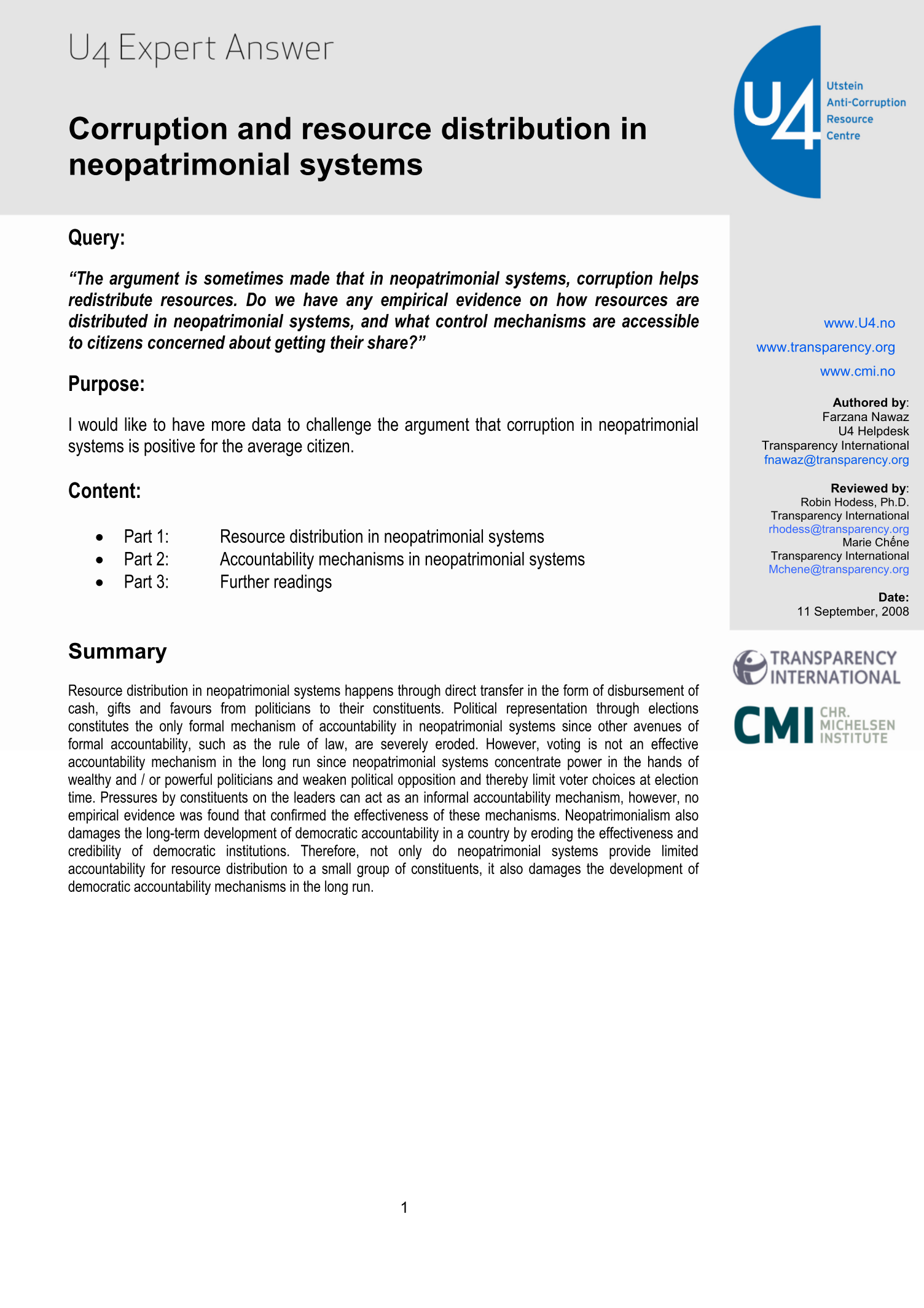U4 Helpdesk Answer
Corruption and resource distribution in neopatrimonial systems
Resource distribution in neopatrimonial systems happens through direct transfer in the form of disbursement of cash, gifts and favours from politicians to their constituents. Political representation through elections constitutes the only formal mechanism of accountability in neopatrimonial systems since other avenues of formal accountability, such as the rule of law, are severely eroded. However, voting is not an effective accountability mechanism in the long run since neopatrimonial systems concentrate power in the hands of wealthy and / or powerful politicians and weaken political opposition and thereby limit voter choices at election time. Pressures by constituents on the leaders can act as an informal accountability mechanism, however, no empirical evidence was found that confirmed the effectiveness of these mechanisms. Neopatrimonialism also damages the long-term development of democratic accountability.

Cite this publication
Nawaz, F. (2008) Corruption and resource distribution in neopatrimonial systems. Bergen: U4 Anti-Corruption Resource Centre, Chr. Michelsen Institute (U4 Helpdesk Answer Helpdesk)
Disclaimer
All views in this text are the author(s)’, and may differ from the U4 partner agencies’ policies.
This work is licenced under a Creative Commons Attribution-NonCommercial-NoDerivatives 4.0 International licence (CC BY-NC-ND 4.0)